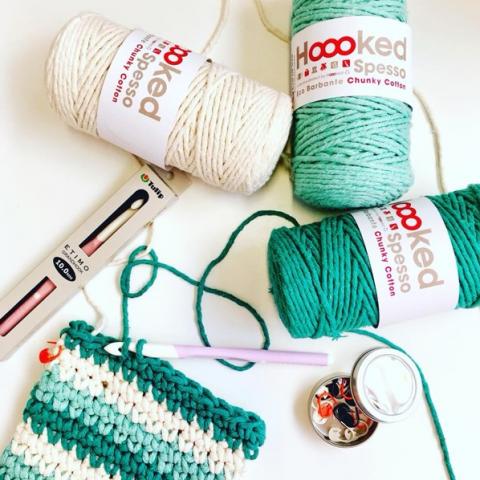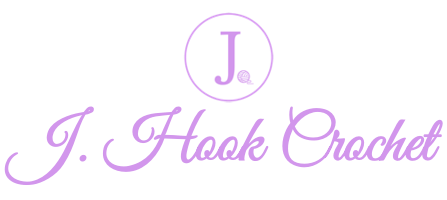Over the past few years, the world is experiencing a tremendous growth in its awareness towards recycling and sustainability, and the yarn and fiber industries are changing and evolving accordingly. This results in a wave of new fibers and fiber blends, which are made out of different recycled and upcycled materials. Some are different recycled textiles and some are completely different material, which are recycled to be made into yarn.
Innovations in production process and the rise in demand for organic-based yarns fuel the growth of this new market.
Join me today as we dive into the world of recycled yarns and find out all there is to know about them!
Recycled Cotton
Perhaps the most common fiber in the recycled yarns category is the recycled cotton. Recycled cotton is not a new concept to the textile and apparel market, but as manufacturers, brands, and retailers continue to evaluate their supply chain footprint, the interest in recycled cotton has grown.
The process of recycling cotton begins by collecting various textile wastes such as secondhand clothing, textile industry waste or leftovers. The cotton waste is first sorted by type and color and then processed through stripping machines that break the yarns and fabric into smaller pieces before pulling them apart into fiber. Finally, the deconstructed fiber is then spun back into yarn.
These new recycled yarns can either be 100% recycled cotton yarns, or they can be blended with other fibers such as wool, acrylic or other plant based fibers, just like any regular cotton fiber.
It is important to remember, however, that the quality of recycled fiber will never have quality values equal to the original fiber. Specifically, fiber length and length uniformity will be impacted, which will limit the end-use application.
Still, recycled cotton yarns are great for projects such as market bags, swimsuit covers, summer hats and tank tops.
Check out this video tutorial - Crochet Market Bag - Easy And Beginner Friendly.
Recycled Polyester
Polyester (PET) is the most widely used fiber in the apparel industry, accounting for around 52% of the total volume of fibers produced globally. Currently, only approximately 14% of this comes from recycled inputs – predominantly from post-consumer PET bottles.
Recycled polyester has a significantly lower carbon footprint than conventional and is a great way to divert plastic from our landfills. In addition, the production of recycled polyester requires far fewer resources than that of new fibers and generates fewer CO2 emissions.
There are 2 ways to recycle polyester:
1. Mechanical Recycling - In this process, plastic is melted to make new yarn. This process can only be done a few times before the fiber loses its quality.
2. Chemical Recycling - This process involves breaking down the plastic molecules and reforming them into yarn. It allows textile to textile recycling, maintaining the quality of the original fiber and allowing the material to be recycled infinitely, but it is more expensive.
It is important to remember, however, that while recycled polyester is a sustainable fiber option, it is still non-biodegradable and takes years to disappear once thrown away. So while the process in which it is made is friendly to the environment, the fiber itself isn't.
Recycled Nylon
Much like recycled polyester, recycled nylon has important environmental benefits: It diverts waste from landfills and its production uses much fewer resources than virgin nylon (including water, energy and fossil fuel).
A large part of today's recycled nylon production comes from old fishing nets. This is a great solution to divert garbage from the ocean. Other sources include nylon carpets, secondhand clothing such as tights, packaging materials etc.
Nylon is not an easy or cheap material to recycle. In addition, new nylon and plastic are cheaper to buy, which is why many companies may prefer not to use the recycled version. Another concern is contamination. Unlike metals and glass, which are melted at high temperatures, nylon is melted at a lower temperature, meaning some contaminants such as non-recyclable materials and microbes or bacteria can survive. This is why all nylons have to be cleaned thoroughly before the recycling process - adding more to its cost.
A lot of research is currently being conducted to improve the quality and reduce the costs of the recycling process of nylon. However, it may be some time before recycled nylon fiber will be more easy to find on the yarn isle shelves.
Recycled Wool
One way to lessen the impact of wool production is to recycle used wool. The practice of recycling wool dates back hundreds of years. In the old days, after wool sweaters had been worn threadbare, they were collected and shredded into individual fibers and then converted into blankets. Today, aided by modern-day quality controls, recycled wool comes from this same process. The wool goes through a meticulous sorting of materials into color categories prior to shredding. By selecting and blending colors of dyed wool fabrics and garments, we can completely eliminate the dyeing process, saving water and chemicals and eliminating the resulting wastewater.
Wool is a naturally durable fiber. In fact, wool garments can stay in circulation for a relatively long period of time, which reduces their environmental footprint. Thanks to the recycling process, these fibers have the potential for several ‘lifetimes’, lasting 20-30 years and often longer.
Recycled wool contributes to a reduction of air, water, and soil pollution.
Where to buy?
As the demand for sustainable and recycled fibers rises, more and more yarn companies include them in their yarn collections. Here are some suggestions for where you can get good yarns made out of recycled fibers:
Hoooked:
Hoooked is a Portugal based yarn company dedicated to tackling the waste of the fashion industry by using it for new yarns. Their philosophy is to reuse these surplus fashion textiles in a stylish way and contribute to sustainable employment in Europe, rather than outsourcing or offshoring production elsewhere.
Today, their yarn collection is composed of recycled textile yarns as well as a large selection of plant based yarns - 100% sustainable collection with and environmental friendly approach. Visit their website here.

Katia:
Katia is a big European brand based in Barcelona, Spain. Their yarn collection features the best and largest selection of natural fibers and recycled yarns in Europe.
Inside Europe, you can shop online for their yarns here, or shop worldwide here.

We Are Knitters:
Despite its somewhat misleading name, this UK based company caters to both knitters and crocheters. They are very outspoken about being dedicated to sustainability - They don't use plastic at all, their needles are all handmade out of 100% beechwood and their bags and packaging are all recycled and reusable. In addition to their fibers being 100% natural, they have several yarns in their collection which are either recycled or upcycled.
If you're shopping with them for the first time, get 12$ (or 10€) off your first order using the code: MGMN8AK16
Visit their website here.

Darn Good Yarn:
Darn Good Yarn is a very unique company in the world of fiber arts. They are completely 100% dedicated to make a positive change in the universe. They spread positivity in any way possible and they believe the application of starting at love with everything you do leads to a happier world.
The company uses recycled fibers, and specifically recycled silk, in almost all of their products, resulting in millions of Pounds of waste materials saved from landfills. In fact, sustainability is one of the 3 core values the company runs on, with the other two being commitment and community.
Shop Darn Good Yarn yarns here.

Soul Wool:
Soul Wool is an online yarn store featuring various yarn companies, all dedicated to sustainability in one way or another. The website is German based, but you can view it in different languages and, of course, it offers world-wide shipping. You can find brands such as BC Garn, Kremke, Erika Knight, Manos Del Uruguay and more - all GOTS certified.
Visit the website here.


